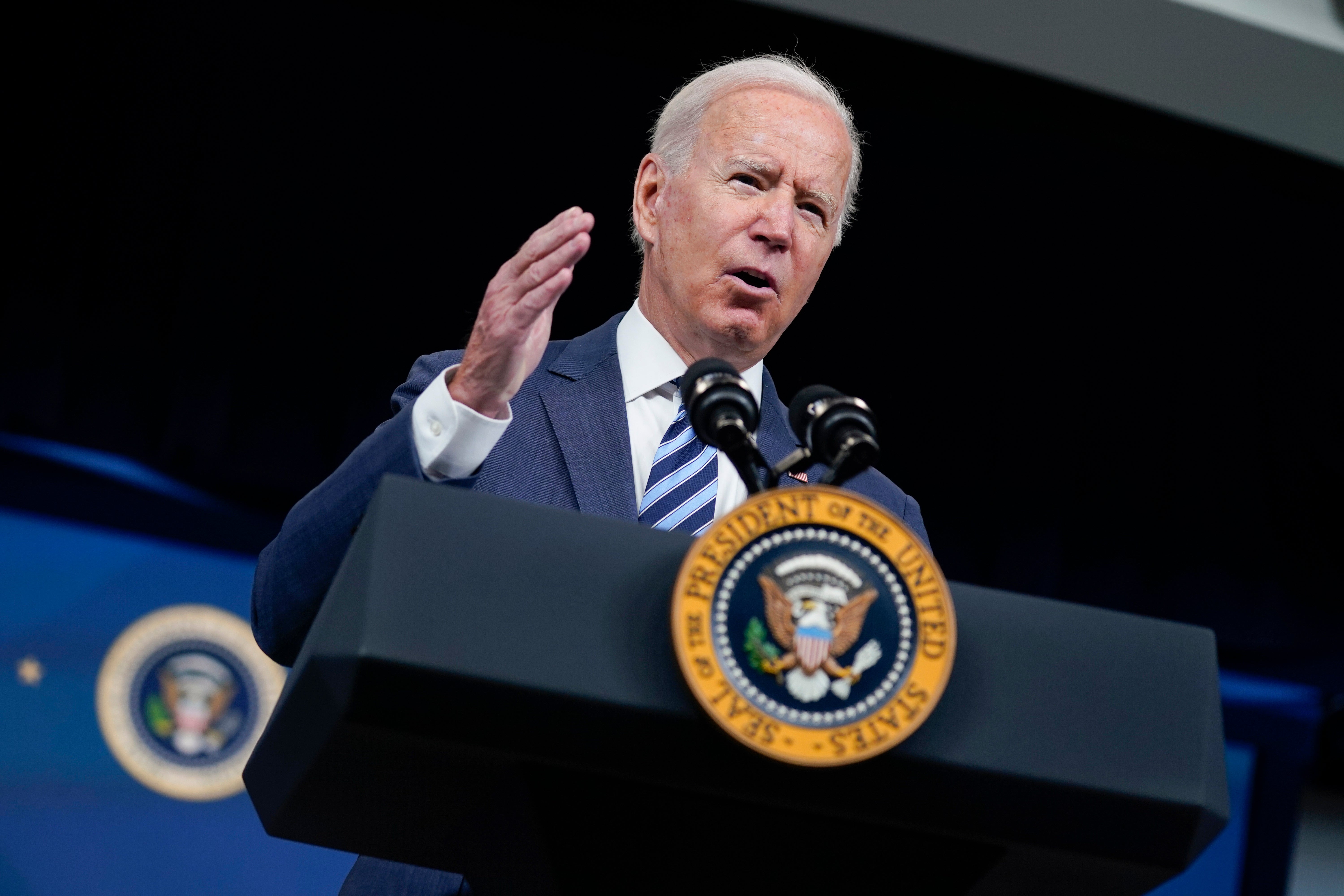Biden message to battered Gulf Coast: 'We are here for you'
President Joe Biden is calling for greater public resolve to confront climate change and help the nation deal with the fierce storms, flooding and wildfires that have beset the country

President Joe Biden is calling for greater public resolve to confront climate change and help the nation deal with the fierce storms, flooding and wildfires that have beset the country as he makes a sojourn to hurricane-battered Louisiana on Friday.
“My message to everyone affected is: We’re all in this together,” Biden said in a speech Thursday at the White House where he addressed the multiple natural disasters that have unfolded this week. “The nation is here to help.”
Trips to natural disaster scenes have long been a feature of the U.S. presidency. It’s a moment to show compassion and deliver aid in ways that can shape the public’s perception of White House leadership.
Biden was scheduled to meet with Louisiana’s Democratic governor, John Bel Edwards, and other local officials and tour a neighborhood in LaPlace, a community between the Mississippi River and Lake Pontchartrain that was inundated by storm surge flooding that left people trapped in attics. He also planned a flyover tour of hard-hit communities including Lafitte, Grand Isle, Port Fourchon and Lafourche Parish, where Parish President Archie Chaisson said 25% of the homes in his community of 100,000 people were gone or had catastrophic damage.
Past presidents have been defined in part by how they handled such crises. Donald Trump casually lobbed paper towels to people in Puerto Rico after a hurricane, generating scorn from critics but little damage to his political standing. Barack Obama hugged New Jersey Republican Gov. Chris Christie in 2012 after Superstorm Sandy, a brief respite from partisan tensions that had threatened the economy with a fiscal cliff. And George W. Bush fell out of public favor after a poor and unprepared response to Hurricane Katrina, which swamped New Orleans in 2006.
In the aftermath of Hurricane Ida, Biden is grappling with the persistent threat posed by climate change and the prospect that disaster zone visits may become a more regular feature of the presidency.
When Biden last visited Louisiana in May, to promote his infrastructure package, he spoke in the city of Lake Charles, where there was a glass tower visible from the podium that was still covered in plywood because a pair of hurricanes last year had blown out the windows.
Scientists say climate change increases the frequency of extreme weather events — such as large tropical storms, and the droughts and heatwaves that create conditions for vast wildfires. U.S. weather officials recently reported that July 2021 was the hottest month ever recorded in 142 years of record-keeping.
As for Friday's trip, Biden said his message to the Gulf Coast was: “We are here for you. And we’re making sure the response and recovery is equitable so that those hit hardest get the resources they need and are not left behind.”
Biden's nearly eight-month-old presidency has been shaped in part by perpetual crises. The president went to Texas in February after a cold winter storm caused its power grid to fail and he has repeatedly monitored the wildfires that have darkened skies in Western states.
In addition to natural disasters, the president has had to contend with a multitude of other challenges. He is searching for ways to rescue the 100-200 Americans stuck in Afghanistan after the longest war in U.S. history ended only a matter of days ago. He is also confronting the delta variant of the coronavirus that has stuck the country in an autumn of uncertainty only months after Biden declared independence from the disease at a July 4 celebration on the White House lawn.
His call for resolve to help the country overcome the pandemic and forge a $1 trillion infrastructure deal is now being applied to the perilous task of withstanding the aftershocks of climate change.
“The past few days of Hurricane Ida and the wildfires in the West and the unprecedented flash floods in New York and New Jersey is yet another reminder that these extreme storms and the climate crisis are here,” he said Thursday. “We need to be much better prepared. We need to act.”
BIden pledged robust federal help for states dealing with natural disasters. And he said he will further press Congress to pass his nearly $1 trillion infrastructure bill to improve roads, bridges, the electric grid and sewer systems. The proposal intends to ensure that the vital networks connecting cities and states and the country as a whole can withstand the flooding, whirlwinds and damage caused by increasingly dangerous weather.
Ida was the fifth-most powerful storm to strike the U.S. when it hit Louisiana on Sunday with maximum winds of 150 mph (240 kph), likely causing tens of billions of dollars in flood, wind and other damage, including to the electrical grid. The storm's remnants dropped devastating rainfall across parts of Maryland, Pennsylvania, New York and New Jersey on Wednesday, causing significant disruption to major population centers.
The storm has killed at least 46 people in the Northeastern U.S. and at least 13 in Louisiana, Mississippi and Alabama.
Edwards said he was looking forward to Biden’s visit to the hurricane-ravaged state.
“I don’t think there’s any substitute for actually being on the ground, speaking with the local officials and seeing with your own eyes the utter devastation that the state of Louisiana has sustained because of Hurricane Ida,” Edwards said Thursday at a briefing with reporters in Tangipahoa Parish, one of the many southeastern parishes with widespread damage from the storm.
Edwards said he’ll give the president a “long list” of requests for federal assistance.
_
Associated Press writers Melinda Deslatte in Baton Rouge, La., and Christina Larson in Washington contributed to this report.
Bookmark popover
Removed from bookmarks